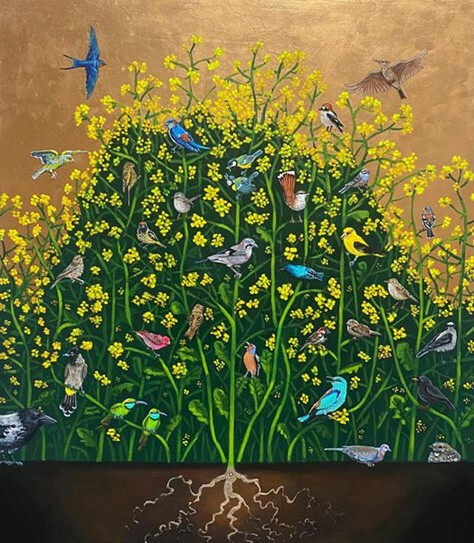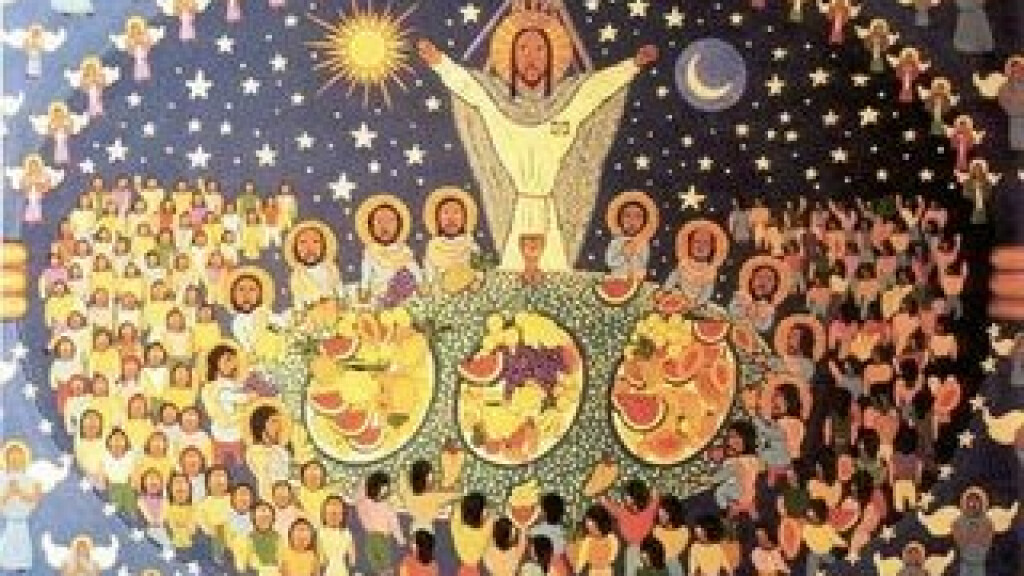October 01, 2023 | Rev. Loren McGrail
More Than Words: Doing Faith
Matthew 21: 23-32
Rev. Loren McGrail
Holmdel Community United Church of Christ
October 1, 2023
This week’s parable from Matthew, illustrates how the tensions that have been simmering are turning into a boil. Jesus has been teaching and healing in the countryside, cities and towns and has just arrived into Jerusalem on a white donkey with everyone shouting, “Hosanna”, which means “Save us.” After arriving he went straight to the Temple and drove out the vendors and welcomed in the crowds that needed healing.
It’s important to say that what Jesus called out when he cleansed the Temple was not Judaism or its various forms of worship. It was the system of exploitation of tithes and taxes that blocked the poor’s access to the divine.
This text and others like it have been misused for centuries to show how Christianity supersedes Judaism which then has led to violence against our Jewish siblings. However, needless to say, the chief priests and elders were alarmed and offended by Jesus and his entourage occupying the temple for two days straight.
From the perspective of the priests this Jesus is a threatening upstart challenging their authority and the status quo. Therefore, some of them questioned his authority, “Show us your credentials. “Who authorized you to teach here?” To answer, Jesus chose to do some spiritual or rhetorical fencing by using a parable about doing God’s will and aligning himself with John the Baptist. Jesus, as usual, entrapped his interrogators in their own trap.
Let’s look at the parable first. Jesus tells the story of two sons. The father asked the first son to go and work in the vineyard, that son said, “No, I will not,” but later changed his mind, and did the work his father needed done. When the father asked the second son to go help in the vineyard, that son said, “I will, sir,” but then he didn’t go.
“Which son,” Jesus asked the chief priests and the elders after telling this story, “Did the will of his father?”
How many of you say the first son? How many say the second son? The first son did the will of his father. It was not what either boy said that mattered in the end; it was what they did.
The summons to religious leaders, and ourselves, is to imitate the first son knowing that sometimes it might require us to have a change of mind or heart. God does not want our fancy words, well -crafted sermons, or beautiful anthems. God wants to see how we put our faith into action; how we do the will of God not only in word but deed.
To make sure his interrogators understand that he is calling them out as acting like son number two, he poses a Catch 22 question about John the Baptist. He asks them, “Did the baptism of John come from heaven or was it of human origin? If they say from heaven, they’ll look like hypocrites because they didn’t get baptized. If they say of human origin, they’ll invite the ire of the crowds who got baptized or believe in John the Baptist. In essence Jesus is saying “You’re too chicken to admit you think John’s baptism is a fraud, in front of all these people who believe in it. So now, let’s talk honestly about authority.
Jesus’ authority comes from his integrity in standing by his words, rather than playing the crowd with what they want to hear. For Jesus “authority” isn’t so much about power as authenticity.
Dear Ones, what Jesus wants is that we stop with our empty words or a piety that doesn’t move us into the world of concrete action on behalf of justice, mercy, equality, love, and compassion.
Dear Ones, we too are invited to be like the first son. And we are also invited to be like the tax collectors and the prostitutes who knew how to repent and be born again. We cannot do this if we keep our faith lives tethered to empty words or abstractions.
This week a group of us attended the Holmdel Board of Education meeting in Holmdel to stand up for a policy that protects trans youth and the teachers and administrators that educate and counsel them. I would like to share with you what Judy Bacon, a persistent attendee of many of these board meetings had to say about the relationship between her faith and showing up. Note how she talks about discomfort as being a sign of how she knows she is being led:
Faith is interesting. It does not always take the comfortable, easy route. Or should I say rarely. I find those areas that
make me a little uncomfortable are usually the areas that challenge my beliefs and make me face troubling realities.
Right now, front and center, is the safety of transgender students with the repeal of Policy 5756. To move forward in my
faith, I need to support those most in peril fighting for their safety to enjoy basic human rights. I need to learn and embrace
and grow to put my faith in action. And yes, with understanding comes peace, knowing I am moving forward on the path
my faith journey is taking.
Dear Ones, when we use our authority to speak and act, we should expect to be questioned by fearful people, should we not? We and our church were not only questioned but also defamed in a public forum recorded on YouTube. As one particular board member was ranting against us, I became aware that we were living out this scripture on BOE Prime Time.
We were being interrogated for our Christian values and most importantly our belief that we are all made in God’s image. It was more than uncomfortable; but like the One who challenges us to leave our comfort zones and risk speaking our truth, it was important to witness and to speak up.
If we don’t live into our Open and Affirming Covenant then are we not like the second son, just mouthing words but not doing the work? If we just fly our flag, and don’t speak out against an injustice that will put our children at further risk, then are we not just like that second son?
Dear Ones, our faith is meant to be embodied. To be incarnate. To be active. In the realm of God, words — even the most beautiful words — are not enough. As we celebrate World Communion today, let us remember that all are welcome at God’s table. Our job is not only to be the welcoming committee but the builders of a table big enough where everyone can pull up a seat. As you leave today, I invite you to continue to think about and search for ways your words and actions infuse, enrich, and mirror each other. We all can become the first son or daughter.
Series Information









